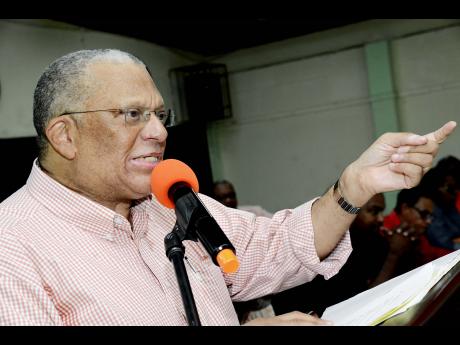Phillips says land distribution at heart of Jamaica's problems
Much of Jamaica's current problems are rooted in the negative socio-economic spin-offs from the inequitable distribution of land, a situation that started with the abolition of slavery, according to Dr Peter Phillips, president of the People's National Party (PNP).
"There is no doubt in the collective view of the shadow Cabinet that this problem of the unequal distribution of land, which has existed from 1838 till now, 180 years, has been at the heart of much of the social and economic inequality in the country," he told the National Executive Council meeting at the Vere Technical High School in Hayes, Clarendon, yesterday.
Phillips told Comrades that the impact of this inequality is further manifested in the agriculture sector, where some 40 per cent of Jamaican farmers work land to which they have no title. Unable to raise funds from financial institutions, these farmers cannot access the technology necessary to improve efficiency and scale up their operations to be globally competitive.
"As a result, they are forced to exist on the margins of the economy and are confined to a life of subsistence and poverty," Phillips said.
"There is no doubt either that this problem of access to land is the underpinning behind the fact that some 30 per cent of our people live in so-called squatter communities - seven hundred thousand Jamaicans in squatter communities, mainly with substandard housing, where people feel compelled to steal water and light and other services and where the communities develop this kind of contact, if not allegiance, to the criminal underworld by virtue of the sheer illegality surrounding their existence."
He said: "Jamaica cannot go on like that, and the PNP shadow Cabinet received the first report, outlined a strategic path forward, which will ensure that the next PNP administration will ... reverse this foundation of inequality resting in the unequal distribution of land."

